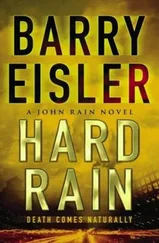He did know, too. We’d worked together. He’d seen what I could do.
I hung up, went back to my position, and waited.
I didn’t know the details, of course, but then I didn’t really need to. Dox knew I was in Hong Kong because that’s where I’d placed the call to Kanezaki. Somehow he’d created that photograph of me. He’d known me before and had seen me recently; maybe he had worked with a technician the way a witness works with a police sketch artist. Or maybe they had a military-era photo and had digitized it to account for the effects of plastic surgery and the intervening decades. Regardless, Dox would have taken the photo around to hotels on Hong Kong and Kowloon. He knew me, so he would start with the best and work his way down. That’s why he knew I was at a hotel, but didn’t know which one.
I realized he’d probably been to the Peninsula, too, but I had left there in too much of a hurry to bother with a formal checkout. Maybe he would have flashed some sort of government ID, U.S. Customs requesting a favor, something like that. Or maybe he even had local liaison. Sure, the Ritz manager had said something about this being a “police matter.” Maybe the Agency had asked the local gendarmerie for assistance. Great.
I shook my head a little sadly. Staying at high-end hotels when I’m moving around is one of the few luxuries I have. Now I saw that the habit had become a liability. I would have to jettison it.
I tried not to take it personally. Dox, Kanezaki, they had their reasons. They were just doing their jobs.
Well, if it got to be too much, I would just do mine. No hard feelings, guys. You know how it is.
Ten minutes later I watched him enter the shopping mall through the second-floor entrance to my right. For the moment, he seemed to be alone. If he was with anyone, they were hanging back beyond the entrance.
As he went to turn into the bookstore I called to him. “Dox. Up here.”
He looked up and smiled. “Hey there.”
“Use the escalator to your right,” I told him. “Hurry.”
He did. While he moved, I waited to see whether anyone came in the entrance behind him, trying to keep up. No one did.
When he reached the top of the escalator, I started moving. “Turn left,” I said. “Just head through the mall. I’ll be right behind you. I’ll tell you what to do next.”
“Don’t you get tired of this stuff?” he asked, giving me a hangdog look.
I watched the escalator behind him. “Go,” I said. “Now.”
He did. I watched the escalator and the entrance for a moment longer. All clear. Then I caught up to him and fell in just behind and to the right of him. Harry’s detector stayed quiet.
We came to a maintenance corridor. “Here,” I said. “Turn right.”
He did. We walked a few meters in. “Stop,” I said. “Face the wall.”
He gave me a long-suffering sigh, but did as I asked. I patted him down. No weapons. I took his cell phone, turned it off, and pocketed it.
“Will you give that back when school’s over?” he asked.
“Sure,” I said. “If you’re good. Now head out.”
I looked back the way we had come from. Nothing set off my radar. So far, so good.
I took him through a provocative series of maneuvers that would have forced a pursuit team into the open. If I’d seen anything, I would have taken him past the knife and ended the bullshit then and there. But he was alone.
I took him to a hole-in-the-wall restaurant deep in Pok Fu Lam, far enough from the island’s tourist areas to draw only the most intrepid sightseers. The area was arguably a slum, but I liked it. In some ways, I found its crumbling four-story buildings, their paint faded and peeling from decades of subtropical moisture, their ornate balconies and carved balustrades by contrast strangely proud, even defiant, to be more pleasing than the trademark wealth and power of the districts east. Dox, enormous, bearded, and, most of all, Caucasian, looked decidedly out of place among the other diners, but he didn’t seem to mind. The menu was entirely in Chinese, but I knew the characters and was able to point to what I wanted.
“What is this?” Dox asked, after the soup had arrived and we had begun to eat. “It’s tasty.”
“Good for you, too,” I said. “A Chinese Olympic running coach used to feed it to his star athletes.”
“Yeah? What’s in it?”
“The usual stuff. Spring water. Mountain vegetables. Turtle blood and caterpillar fungus.”
He paused, the spoon halfway to his lips. “You serious?”
“Well, that’s what it said on the menu.”
He nodded as though considering. “Those Chinese runners are quick. If it’s good enough for them, I guess I can have some, too.” He slurped the rest down with a smile.
I wasn’t surprised. I’d seen Dox dine on equally unusual fare in the field in Afghanistan. Always with relish.
When we were done with the soup, I asked him to tell me what was going on.
“Well now,” he said, leaning back in his chair. “You wouldn’t believe the things they’ve trained me on. Forging ID, hacking computer networks, locks and picks, flaps and seals… And not just the training, they give me the toys! I’ve got a twenty-five-thousand-dollar color laser copier, special paper, inks, hologram kits, magnetic stripe encoders, shoot, buddy, I can whip up fake ID that’d make your hair stand up! You want something, you just let me know.”
“You didn’t come here just to make a sales pitch for fake ID, did you?” I asked.
He seemed to brighten at that, and I wondered if Dox had come to the conclusion that my occasional barbed remarks were actually terms of endearment. That would be perverse.
“I had a weird meeting with a guy the other day,” he said, grinning. “Came all the way to see me in Bangkok, where I was relaxing and revivifying at the time. Told me his name was Johnson. But his real name is Crawley. Charles Crawley. The Third. Imagine, a family that would want to perpetuate a silly name like that when they could have named him something imaginative like Dox.”
“How’d you get his real name?”
The grin widened. “Shit, I could smell lies all over that boy. So I pretended to get a call on my cell phone while we were talking. I used the phone to take his picture.”
He must have had one of the units with a built-in digital camera. In these matters it used to be that you only had to worry about the odd amateur who happened to be carrying a camcorder, like Zapruder or that guy who caught the police working over Rodney King. Now it was anyone with a damn cell phone.
I pulled out the unit I had confiscated from him. “This phone?” I asked.
He nodded. “Go ahead, take a look.”
I hit the “on” button and waited for a moment while the phone powered up. Yeah, it was an Ericsson P900, new and slick, with a built-in camera and a lot more. I handed it to Dox. He worked the buttons for a moment, then gave it back to me. I saw a surprisingly sharp image of a fine-boned, thirty-something-year-old Caucasian with curly wheat-blond hair, blue eyes, a thin nose, and thinner lips. The picture had been taken from an odd, and apparently surreptitious, angle.
“Weaselly-looking little fuck, ain’t he. I got a few more if you want to take a look. Just press that advance key there.”
I did as he indicated and scrolled through, getting a better sense of what Crawley looked like. Photos aren’t always good likenesses. If you see more than one, you increase your chances of being able to recognize the subject in person. Which I was beginning to think I might want to do.
When I was done, I turned the phone off and handed it back to Dox. He was still smiling. “If you want, I can forward the photos directly to your cell phone,” he said. “Or to an e-mail account. Hell, if you feel like having fun, we can post old Crawley’s face on any bulletin board you’d like! Dumbass didn’t even know what I was doing. Shame on him for failing to keep up with the ever-advancing march of technology.”
Читать дальше












